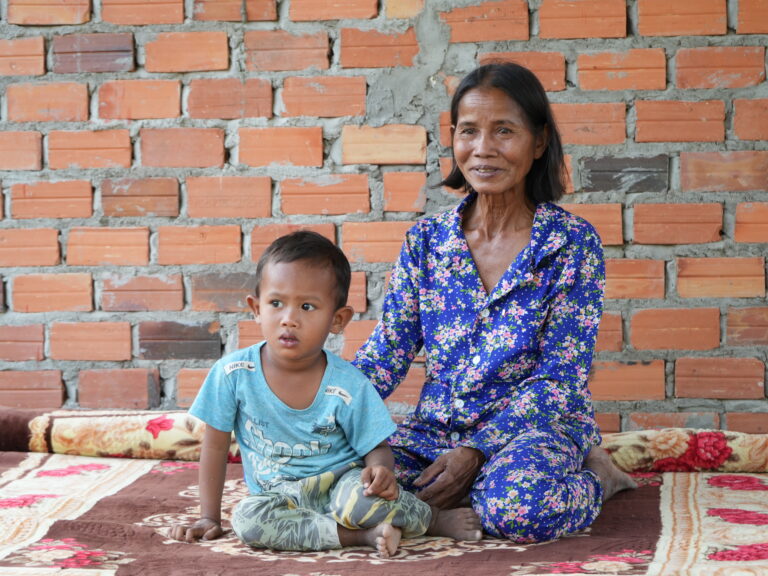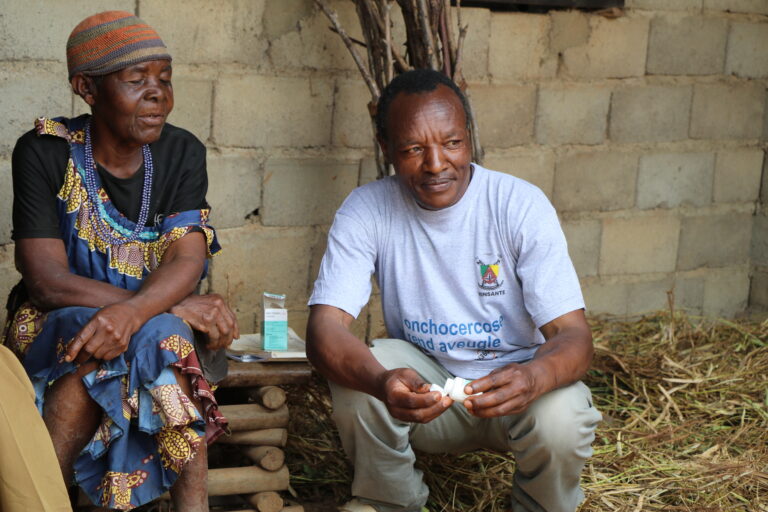Climate-Smart Agriculture Supports a Community
Although Maliatou Nignan and her family had been farming for years, they still struggled to grow enough food to feed themselves or earn an income. As Maliatou says, they “worked hard on arid lands” in their community of Zoro in southern Burkina Faso.
“We cultivated vegetables and white-fleshed sweet potatoes, but the yields were below our expectations,” she explains. “I had little knowledge of agricultural techniques and practices.”
That all began to change when the 32-year-old mother of four volunteered to lead a village model farm in Zoro. Working with Helen Keller Intl, Maliatou received training in nutrition-sensitive and climate-smart agriculture practices and has used her new knowledge and skills to improve her own family’s farming practices and help other women farmers in her community do the same.
Climate’s Impact on Livelihoods
Burkina Faso’s economy is largely agrarian, with up to 80% of its workforce employed on small, family farms. Many families like Maliatou’s can’t grow the amount or variety of produce they need to support a healthy diet, and malnutrition is a major problem across the country. About one quarter of children under age five suffer from stunting because they do not have enough healthy food to eat.
These small farms are also vulnerable to Burkina Faso’s extreme weather conditions, which are only expected to worsen with climate change. Increasingly unpredictable weather will make it even more difficult for families to grow and eat healthy foods, putting them at greater risk of malnutrition.
Helen Keller has partnered with communities in the Sissili Province where Maliatou lives to help improve food security, nutrition, and livelihoods for women and their families building resilience to extreme weather.
Cultivating Climate-Smart Agriculture
The village model farms serve as educational spaces where women can learn how to start and cultivate home gardens and provide good nutrition for their families, as well as receive farming supplies, including seeds and equipment. Maliatou soon discovered she has a passion for teaching and became one of five elected leaders of the farm and now regularly trains and mentors other women farmers in her community.
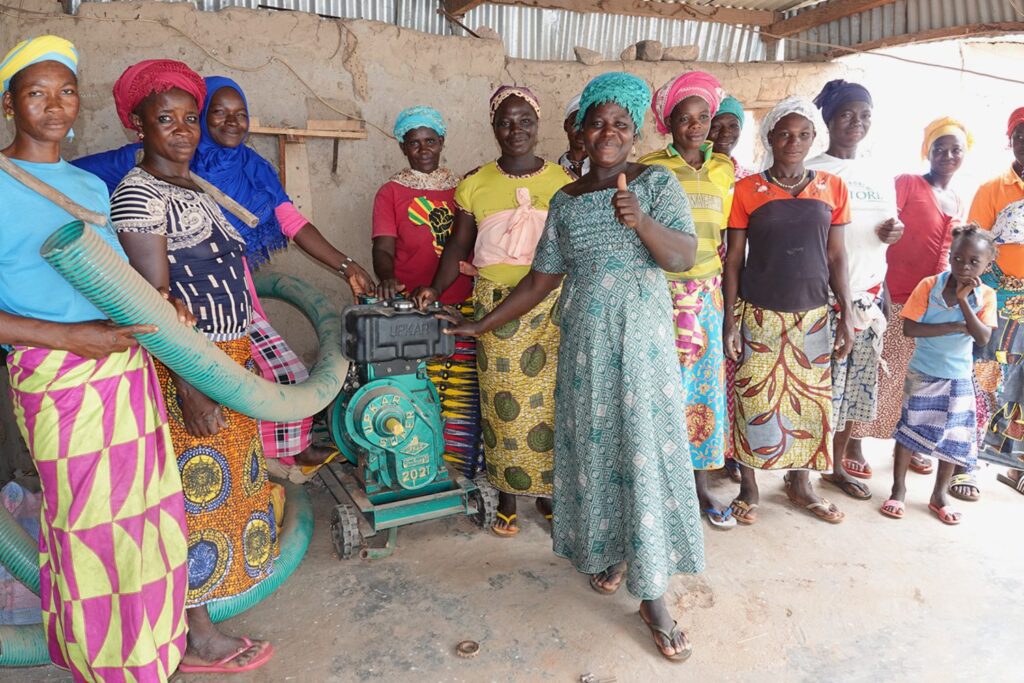
Maliatou teaches her neighbors how to adapt to farming in increasingly difficult weather conditions with climate-smart agriculture practices such as effectively managing water, selecting crops for specific climate conditions, and rotating and protecting crops. She has also helped her peers learn about good nutrition, especially for young children, and helped them diversify their crops to include highly nutritious foods like leafy greens and orange-fleshed sweet potatoes.
With these techniques, farmers in the village can now grow crops in both the dry and wet seasons, ensuring the households in Maliatou’s community have a continuous supply of fresh, nutritious foods.
“Now we know how to prepare our soils, manage our production plots, and produce a variety of vegetables and tubers throughout the year using less space,” she says. “With the help of Helen Keller Intl, we now grow vegetables year-round using intercropping on the same plot with drought-tolerant varieties.”
Building Nutrition and Economic Security
Maliatou’s own family has also benefited from the expertise she has built as a village model farm leader. She and her husband, Oumarou Dagano, have their own plot of land where they grow a variety of nutritious crops including leafy greens, legumes, and orange-fleshed sweet potatoes. Using the farming techniques Maliatou learned they have dramatically increased their harvests.
“Before, we used traditional methods of planting sweet potatoes,” explains Maliatou. “After learning the improved production practices, our yields per hectare have increased, even doubled! Thanks to all these methods, my family can produce and access more nutritious food.”
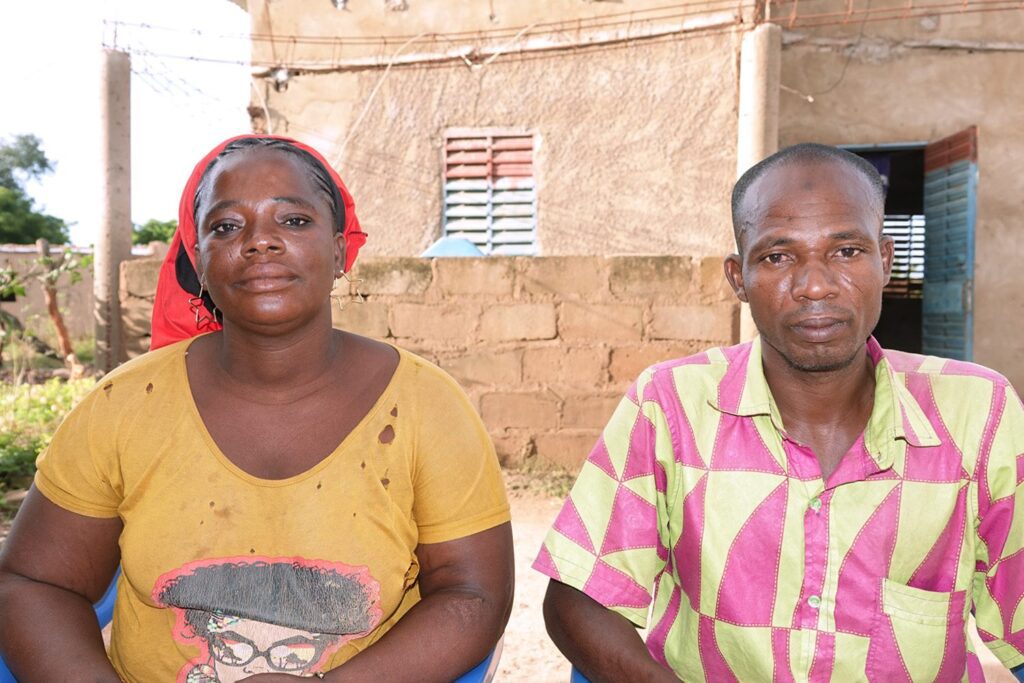
With their increased production, Maliatou and Oumarou are now able to sell their surplus sweet potatoes and leafy greens to earn an income and improve their family’s financial security.
Maliatou and the women she supports also have the opportunity to join village savings and credit associations, microfinance groups managed collectively by members of the community. Access to financial services is often limited in rural areas, especially for women, and these groups offer a safe place to save, invest, and borrow money to help women develop their financial independence.
“I used the extra income to join the village savings and loan association to support my children’s education costs and the rest for our family expenses,” she says.
With support from the Helmsley Charitable Trust, Helen Keller has supported nearly 7,000 women with training and resources in agriculture to combat malnutrition and expand their economic opportunities.
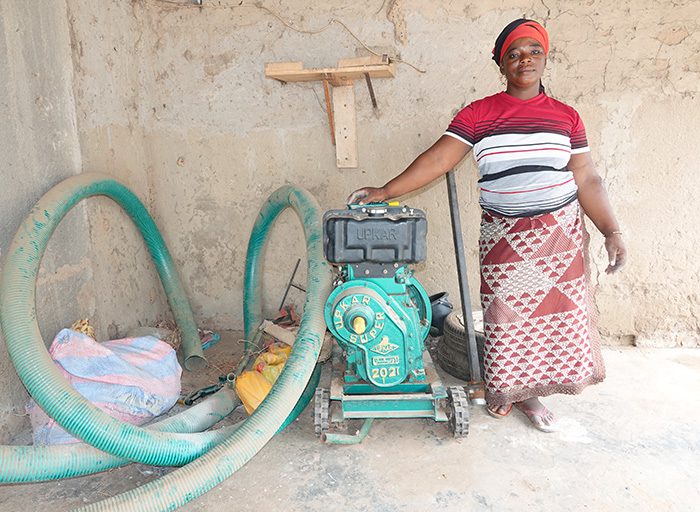
Help women like Maliatou create lasting change in their own communities.

